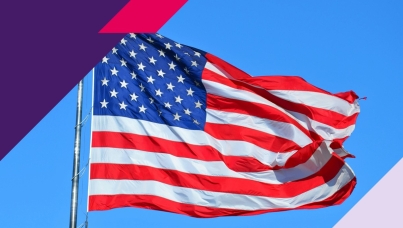It's a major global election year, and populism is on the ballot
2024 is set to be perhaps the biggest test of global democracy ever. There are roughly 70 national-level elections slated to occur this year, representing nearly half of the world’s population.
There’s a lot at stake this year.
New Ipsos polling suggests that feelings that the “system is broken” are high across the world. Global citizens clamor for a strong leader to “take their country back” from the rich and powerful. Given the popularity of populist leaders on the ballots, could 2024 usher in a new set of populist leaders?
Below are five charts on where the world stands on populism and where things could head in 2024.
- In a monumental election year, there’s an appetite for populism. Feelings that the system is broken are high, particularly in some countries with major elections in 2024. Populist candidates are on the ballot in many of these countries, including Mexico, India, and the United States. The populist Prabowo Subianto has already won in Indonesia. How will the rest of the populist candidates fare? We will see.
- A test for global democracy. Democracy itself may be at stake in 2024. Our analysis has shown that populist sentiment is strongly correlated to measures of democratic backsliding and corruption. Already, for example, some experts have warned that Subianto’s victory might put Indonesia’s democracy at risk. In the U.S., presidential candidate Donald Trump has long flouted democratic norms. Of course, populist leaders aren’t always anti-democratic. But still: watch this space.
- GDP may be up, but trust in the economic system is down. Populism is in part driven by the collapse of trust in economic systems. That has happened across many of the countries polled, despite projected growing GDP numbers. When citizens don’t feel the benefits of a growing economy, trust in the economic system collapses, giving room for populists to take center stage.
- Populists want a different government, not a small government. Majorities across the 28 countries polled want their government to increase spending across the board in areas like infrastructure, healthcare, and poverty. At the same time, more populist-leaning populations aren’t much more likely to want less government intervention – the correlation is weak. Don’t conflate populist sentiment with anti-government sentiment.
- Two Americas; One red, one blue. In the U.S., populist and establishment forces are set to clash in the form of a more-likely-than-not Trump-Biden rematch. This divide is reflected in the political parties’ support for populist beliefs: Republicans have among the highest populist sentiment compared to citizens of other countries, while Democrats lie closer toward the bottom. Which force will prevail? We will see.
Throughout the data, one thing is clear: people are fed up with the “system” and feel betrayed by the economic, political, and media forces that govern their everyday lives. In response, they are willing to turn to outsiders who claim to be the cure, even if said outsiders are willing to flout democracy itself.
How will these feelings play out in 2024? We will see. Just don’t expect this sentiment to go away quietly.



